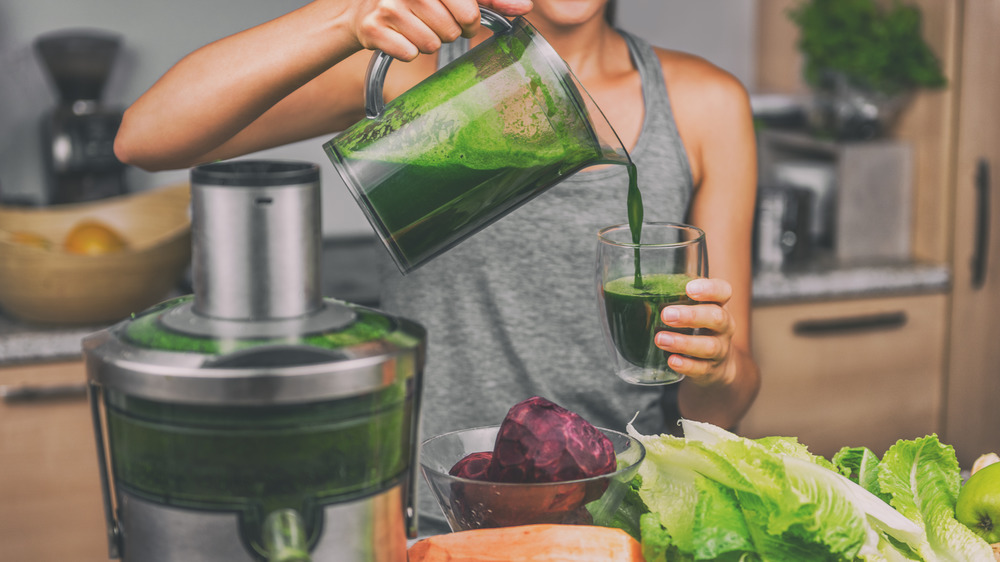This Is How Often You Should Drink Green Juice
As morning routines get more and more attention for being the best way to start your day, many have tried new wellness trends to go along with them, like warm lemon water, celery juice, and mindfulness techniques. However, drinking green juice seems to be a trend that is here to stay.
When it comes to the frequency with which you drink your juice, starting with a few times a week is a great way to ensure you get important nutrients. However, you should always adjust to what feels best for you. If your body is craving a daily green juice in the morning and if it gives you a spring in your step, add it to your morning routine. Keri Glassman, R.D., told Shape that, "Green juices are a great way to get in your recommended servings of fresh produce, especially if you have a hard time fitting in loads of broccoli, kale, collards, or cucumbers in your everyday diet."
It's important to make sure that you're not inhaling loads of sugar with your green juice, however. "As a general rule, stick to green juices made mostly with leafy greens, which are much lower in sugar than fruit-based options," Glassman adds. "Take a good look at the nutrition stats: Some bottles are considered two servings, so keep that in mind when checking calories and sugar content. Also think about the purpose of your juice — is it part of a meal or just a snack?"
Depending on how frequently you get your greens, adding a juiced version to your diet can help make up for lost time.
Juicing strips produce of its fiber content
However, if you're consistently juicing without ever incorporating whole foods into your diet, you may be depriving yourself of vital fiber content found in the pulp of the fruits or vegetables. "But keep in mind that juicing does strip produce of dietary fiber, which is found in the pulp and skin of produce and aids in digestion, regulates blood sugar levels, and keeps you feeling full longer. So whole foods are still the optimal way to ensure you're getting plenty of fiber in your diet," Glassman explains to Shape. If you're low on fiber or are having issues with your digestion, drinking a daily green juice may not be the best option for your gut.
In addition to adding whole foods, it may be best to drink your green juice on an empty stomach. Mindbodygreen reports that this creates an ideal environment that aids in the full absorption of these nutrients. Allow the juice to circulate for 30 minutes before eating and see if it makes a difference in how you feel. While the lack of fiber means you need to get your supply elsewhere, green juice also contains a healthy level of prebiotics, which are an excellent addition to your gut-healthy routine, Healthline explains. By ingesting them on an empty stomach, you may be able to reap their benefits more easily as well.
The outlet suggests using green juice as a way to increase your nutrient intake rather than make up your main source of them. As long as it feels good for you and you're still getting the full amount of vitamins and minerals you need from whole foods, having a green juice every day or so can be a delicious addition to your routine.

